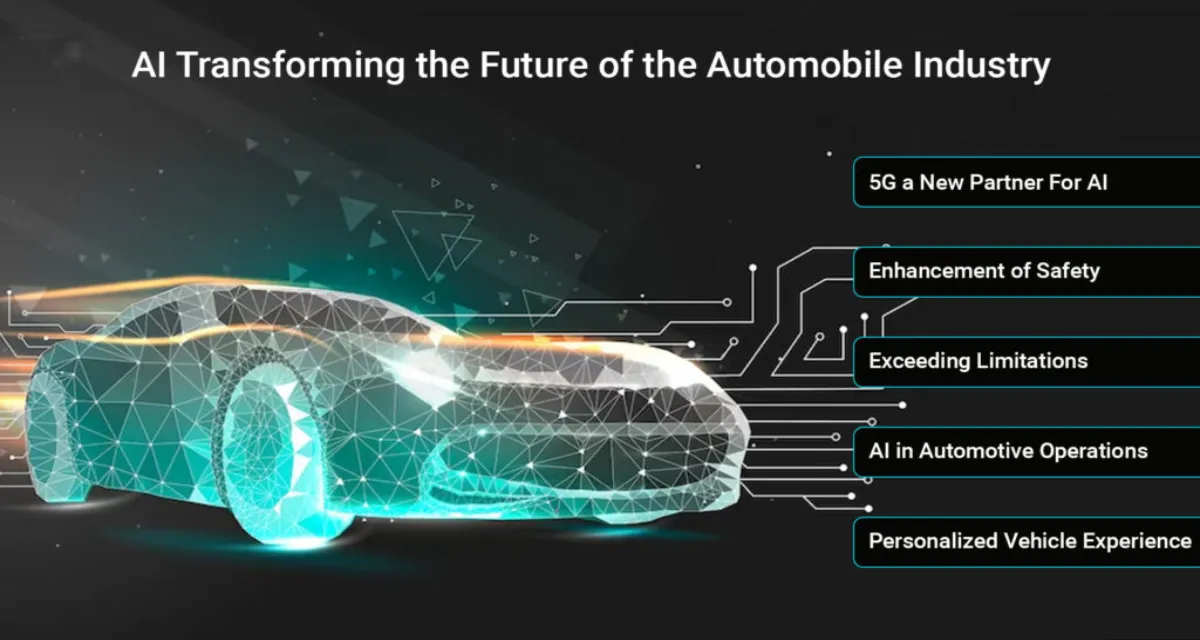
How AI Is Driving the Future of the Automotive Industry: 5 Groundbreaking Innovations

How AI Is Driving the Future of the Automotive Industry: 5 Groundbreaking Innovations
The automotive industry and technological and socio-cultural development go hand in hand, and now, the automotive industry faces a radical revolution with the help of artificial intelligence. This is not merely a progress in the precedent of the industry towards innovation, but an evolution into a new era where AI will revolutionize mobility, cars maintenance, and production. Below is a breakdown of five strategies that AI is using to change the automotive industry in the quest to produce smarter, safer, and more efficient cars.
Autonomous driving stands as one of the most exciting applications of AI in the automotive industry. Companies like Tesla, Waymo, and Uber are at the forefront of developing self-driving vehicles that can navigate roads, adhere to traffic laws, and avoid obstacles without human intervention. These vehicles rely on a sophisticated combination of cameras, sensors, radar technology, and AI algorithms to understand their surroundings and make split-second decisions. The promise of autonomous driving includes not only reducing traffic accidents caused by human error but also providing mobility solutions for those who are unable to drive, such as the elderly and disabled. As technology advances, we can expect self-driving cars to become a common sight, offering greater independence and safety on the roads.
AI is revolutionizing vehicle maintenance through predictive analytics. By analyzing data from in-vehicle sensors and historical maintenance records, AI systems can forecast when a component is likely to fail and schedule preventative servicing before a breakdown occurs. This approach reduces repair costs, minimizes vehicle downtime, and extends the vehicle’s lifespan. Additionally, these systems can be integrated with smartphone applications, alerting owners to upcoming maintenance needs. Such predictive systems also enhance communication with repair shops, allowing mechanics to diagnose and address issues more efficiently, thereby improving overall vehicle reliability.
AI is streamlining manufacturing processes across various industries, and automotive production is no exception. Robotics and machine learning algorithms are transforming assembly lines by performing complex tasks with high precision and consistency. AI-driven robots can handle delicate operations, while machine learning helps identify production bottlenecks and inefficiencies. This optimization results in improved productivity, enhanced product quality, and reduced waste, ultimately driving down costs for manufacturers. As AI continues to evolve, manufacturing will likely become even more automated and efficient, further pushing the boundaries of what’s possible in automotive production.
The in-car experience is also being transformed by AI, making driving safer and more enjoyable. Modern vehicles now feature advanced infotainment systems that integrate with virtual assistants like Apple’s Siri and Amazon’s Alexa. These AI-powered assistants can manage climate control, navigation, and entertainment through voice commands, allowing drivers to keep their focus on the road. By understanding natural language and personal preferences, these systems offer a customized driving experience that caters to individual needs. This not only enhances convenience but also contributes to safer driving by minimizing distractions.
AI is making significant strides in traffic management and navigation, improving urban mobility. Smart traffic systems use real-time data from services like Waze, traffic cameras, and GPS devices to optimize routes and reduce congestion. AI analyzes this data to suggest alternative routes, manage traffic light timings, and predict potential delays. By improving traffic flow and reducing vehicle idling, these systems contribute to lower emissions and a more efficient transportation network. The result is a more livable urban environment with smoother traffic and reduced environmental impact.
AI is proving to be a transformative force in the automotive industry, driving innovations that enhance safety, efficiency, and the overall driving experience. From autonomous vehicles and predictive maintenance to optimized manufacturing and personalized in-car experiences, AI is reshaping every aspect of automotive technology. As AI continues to advance, the future of transportation promises to be smarter, safer, and more sustainable, heralding a new era in mobility. This integration of AI is not just a trend but a fundamental shift poised to redefine how we travel and interact with our vehicles.
Also Read: